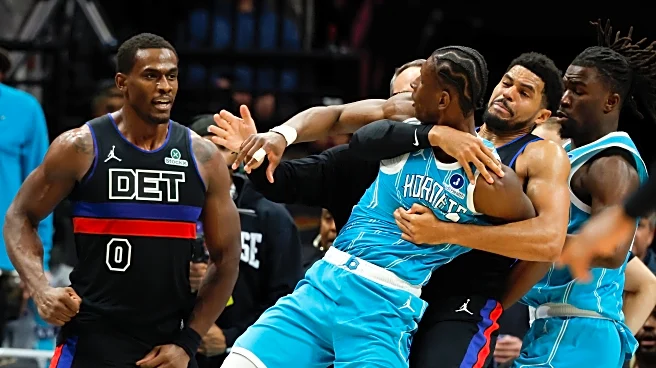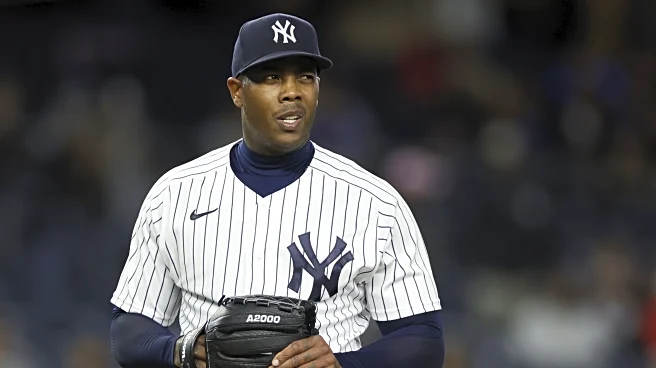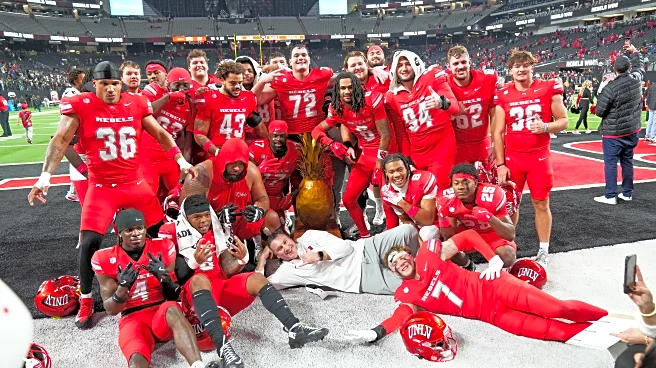What's Happening?
Phil Johnston, writer-director, has released an animated adaptation of Roald Dahl's classic children's book 'The Twits'. The film portrays Mr. and Mrs. Twit as two of the meanest characters in children's literature,
who have built a backyard amusement park called Twitlandia to lure children. The story unfolds with two orphans, Beesha and Bubsy, who find themselves at Twitlandia after a flood of liquid hot dog meat, unleashed by the Twits, affects their lives. Johnston's adaptation blends gross humor with whimsical elements, such as magical monkeys and exploding butts, while incorporating themes of empathy and chosen family.
Why It's Important?
Johnston's adaptation of 'The Twits' is significant as it introduces political commentary into a children's story, reflecting current societal issues. The film addresses themes of hatred and empathy, mirroring the national discourse characterized by gross and puerile behavior. By placing children in the midst of this chaos, Johnston aims to empower young audiences to confront and navigate the pervasive negativity in the world. The film also emphasizes the importance of chosen family, offering a message of hope and unconditional love amidst adversity.
What's Next?
The release of 'The Twits' on Netflix is expected to spark discussions on the role of children's media in addressing complex societal issues. Johnston's approach may influence future adaptations of classic literature, encouraging filmmakers to incorporate contemporary themes into their narratives. As audiences engage with the film, reactions from parents, educators, and critics will likely shape the discourse around the balance between entertainment and political messaging in children's media.
Beyond the Headlines
Johnston's adaptation of 'The Twits' challenges traditional narratives by deviating from the original book's ending, which involved the unceremonious death of the Twits. Instead, the film promotes a message against revenge and vengeance, advocating for empathy and understanding. This shift reflects a broader cultural movement towards more thoughtful and inclusive storytelling, encouraging audiences to reconsider the impact of media on societal values.











